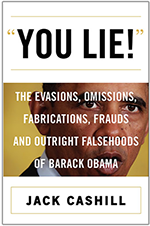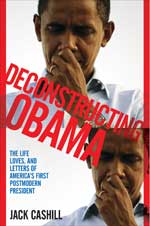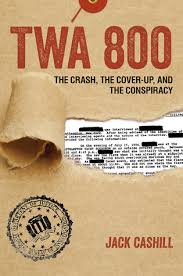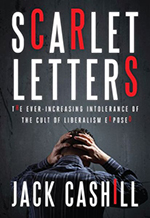Climate Science: Dishonest for Decades
_____
Order Jack Cashill's latest book, TWA 800: The Crash, the Cover-Up, and the Conspiracy
______
Order Jack Cashill's book,
Scarlet Letters
___
Get your copy of Jack Cashill's book, "You Lie!"

___
Get your copy of Deconstructing Obama

___
Jack Cashill's book:
Hoodwinked: How Intellectual Hucksters have Hijacked American Culture
© Jack Cashill
WND.com- April 26, 2017
Former Obama Energy Department Undersecretary Steven Koonin made news on Monday when he told the Wall Street Journal that the administration spun climate data to shape public opinion.
“What you saw coming out of the press releases about climate data, climate analysis, was, I’d say, misleading, sometimes just wrong,” Koonin said.
What is most shocking about the mini-Koonin flap is that anyone was shocked. Scientific showmen have been manipulating climate data as a way of shaping policy for decades.
In 1983, for instance, a veritable supergroup of scientific rock stars including the self-promoting pothead Carl Sagan, published a paper in Science called "Nuclear Winter: Global Consequences of Multiple Nuclear Explosions."
Sagan and his colleagues presented a complex equation to justify their thesis that even a limited nuclear exchange would cause global temperatures to drop by more than 35 degrees Centigrade.
There was a lot going on in 1983. That year, with President Ronald Reagan’s unswerving support, NATO was holding firm in its commitment to install U.S. cruise missiles in Britain and Italy and Pershing II ballistic missiles in West Germany.
To rattle the west’s collective nerve, Soviet intelligence sparked a worldwide protest movement, most of whose participants had no idea who or what had revived their fear of Armageddon.
Among the protestors that eventful year was a Columbia University senior named Barack Obama. In March 1983, the student journal Sundial published an awkwardly written essay of his on what he called, “the flowering of the nuclear freeze movement.”
Although Obama did not discuss nuclear winter--he may not yet have heard of it—he focused specifically on its likely cause, the impending missile deployment in Europe. This subject did not yet trouble everyone, just the elite, or, as Obama put it, “the more sensitive among us.”
Sagan rolled his thesis out in the popular Sunday supplement Parade and supplemented that the following day with a well-publicized conference in Washington co-chaired by the equally ubiquitous alarmist Paul Ehrlich.
Between the two of them, in fact, they would appear on the Johnny Carson Show more than sixty times. “This is not the way science is done,” said the late Michael Crichton. “It is the way products are sold.”
Although the nuclear winter hysteria would evaporate a little more slowly than the nuclear freeze movement, once the missiles were in place, neither had much of a future. The KGB lost interest.
Sagan did get to exercise his thesis in a limited test in 1991 with the advent of the Gulf War. He calculated that if Saddam Hussein set the Kuwaiti oil fields alight as promised, the result would be comparable to the 1815 explosion of the Tambora volcano.
That explosion, said Sagan, led to “serious, massive crop failures” throughout the known world. In fact, Saddam did set the oil fields on fire as promised, but the “Saddam Autumn” did not materialize as projected. In fact, as meteorologist Joe Witte reported in the New York Times, “The fires caused no long-term weather effects.
Happily for Sagan, his failed projections largely escaped notice because, by this time, climate alarmists had found a new source of science fiction theater, global warming.
In June 1988, just thirteen years after scientists fretted in the pages of the Times about global cooling, James Hansen introduced warming to a US Senate Committee on Energy and Natural Resources.
As director of the Goddard Institute for Space Studies, Hansen lent NASA’s authority to his apocalyptic vision.
The following year, in an interview for Discover magazine, Stephen Schneider of the National Center for Atmospheric made the mistake of saying out loud what Sagan, Hansen and others had been saying and doing quietly.
Schneider argued that although scientists were “ethically bound to the scientific method,” they also needed “to capture the public’s imagination.”
To do so required media attention, and to get that attention they needed to “offer up scary scenarios, make simplified, dramatic statements, and make little mention of any doubts [they] might have.”
Schneider concluded, “Each of us has to decide what the right balance is between being effective and being honest. I hope that means being both.”
Schneider would spend the rest of his life complaining he had been quoted out of context, but it is hard to mistake his intentions. It was essential to scare. One merely “hope[d]” that the scare tactics would be honest.
Decades later, we are still “hoping” that he science we’re fed is honest. But as the alleged “March for Science” showed last weekend, many Americans, scientists included, still just want it to scare.

Jack Cashill’s newest book, TWA 800: The Crash, the Cover up, the Conspiracy can now be ordered at Amazon.



